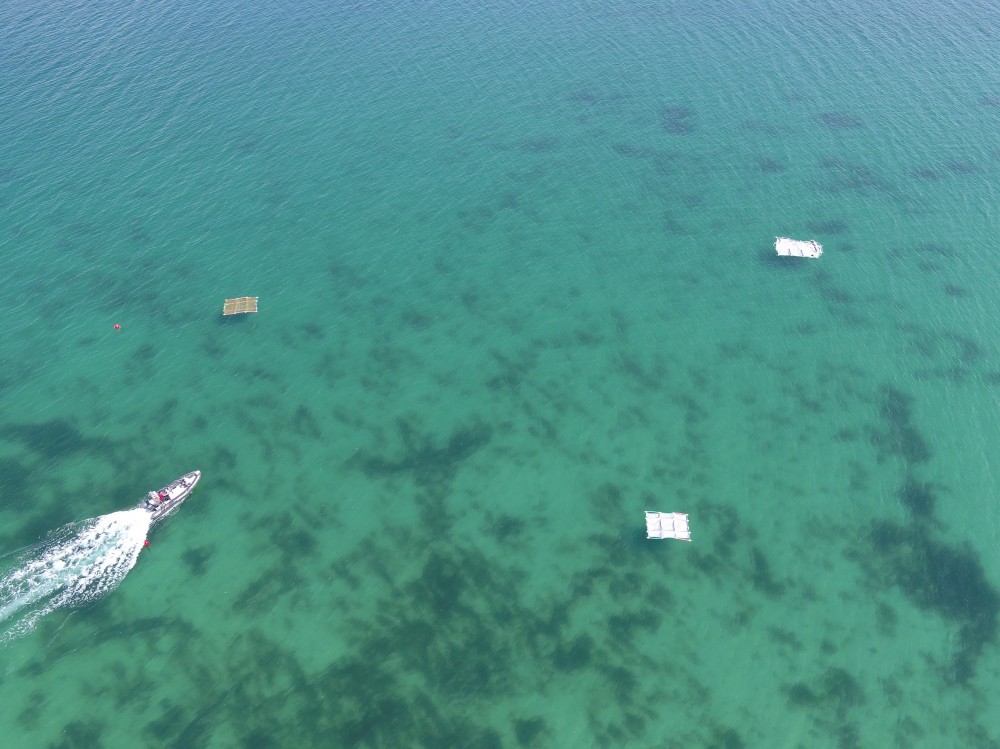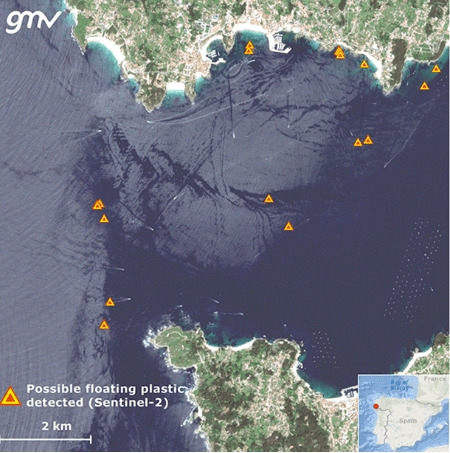GMV presents the results of the BEWATS project

On 28 May a meeting was held to present the results of the Beach Waste Tracking System (BEWATS) project, which is looking for effective beach-litter cleaning mechanisms, doing so by applying current and tide models to predict waste origin and end points; it is also using satellite images to detect plastic marine litter. GMV is taking part in BEWATS in collaboration with Vigo University and the Mathematical Sciences Institute (ICMAT) of Spain’s Higher Council for Scientific Research (Consejo Superior de Investigaciones Científicas: CSIC).

The project has centered on Galicia, in the Rias of Vigo and Pontevedra, including the National Park of the Atlantic Islands of Galicia. Four experiments were held in which GMV has applied and successfully validated its groundbreaking earth-observation-data analysis and processing method. The validation procedure involved “targets” of different sizes and types of plastic set up along the coast by the research group of Vigo University’s AtlantTIC Center. GMV’s satellite-image processing algorithm was able to pinpoint, classify and quantify possible marine litter. To do so GMV used images taken from the Sentinel-2 satellites (with a spatial resolution of between 10 and 20 meters) provided by Copernicus Open Access, combined with machine learning techniques drawing from dynamic marine models.
During the meeting Vigo University’s I-MARK group presented the results of the SWOT analysis (strengths, weakness, opportunities and threats) and the market study on the possible commercial application of the developed technology, which threw up very promising results for potential clients of the public sector.
Those present included the Spanish Marine Litter Association (Asociación Española de Basuras Marinas), the Zero Waste Association (Asociación Vertidos Cero), the Irish Centre for High-End Computing (ICHEC), CETMAR, the Balearic Island Coastal Observing and Forecasting System (SOCIB), Universidad Politécnica de Valencia (UPV) and the Spanish Oceanographic Institute (Instituto Español de Oceanografía).
BEWATS, using UAV images to develop and employ groundbreaking remote marine-litter control methods, kicked off in December 2019, following on from the European Litterdrone project (2017-2019). BEWATS has been funded by the Programa Pleamar of the Biodiversity Foundation (Fundación Biodiversidad) of Spain’s Ministry for the Ecological Transition and Demographic Challenge (Ministerio para la Transición Ecológica y el Reto Demográfico).
GMV is also leading the ESA-funded projects PlasticLESS and ATIN-BLUECO to continue making headway in the development of algorithms based on earth-observation space technology in order to help re